New Zealand Prime Minister Christopher Luxon highly appreciated the bilateral relationship with Vietnam, believing that the two sides will achieve the trade turnover target of 3 billion USD by 2026.
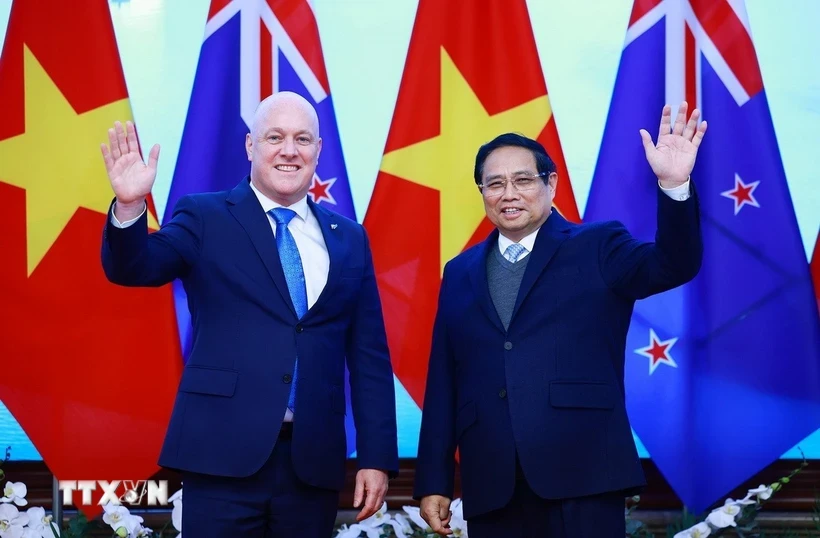
At the invitation of Prime Minister Pham Minh Chinh, New Zealand Prime Minister Christopher Luxon paid an official visit to Vietnam from February 25-28, and attended the second ASEAN Future Forum in Hanoi.
On this occasion, New Zealand Prime Minister Christopher Luxon took the time to answer press questions about the Vietnam-New Zealand bilateral relationship, in the context of the two countries having just upgraded their relationship to a Comprehensive Strategic Partnership.
- Prime Minister, 2025 marks the 50th anniversary of the establishment of Vietnam-New Zealand diplomatic relations and an important milestone to commemorate this occasion is that the two countries have officially upgraded their relationship to a Comprehensive Strategic Partnership. How does the Prime Minister assess the achievements in bilateral cooperation over the past half century and why is this the time to upgrade the relationship between the two countries?
Prime Minister Christopher Luxon: First of all, this is a truly special relationship between New Zealand and Vietnam.
This relationship has spanned 50 years, starting with Vietnamese students coming to New Zealand to study under the Colombo Plan.
Since then, the relationship between the two peoples has been connected, increasingly nurtured and opened up opportunities for cooperation in many fields.
Looking back at the achievements over the past 50 years, they are truly amazing. In particular, two-way trade has increased by 40% in the past 5 years. And now is the right time for the two countries to upgrade their relationship to a Comprehensive Strategic Partnership.
As you know, Prime Minister Pham Minh Chinh was the first foreign leader to visit New Zealand when I became Prime Minister more than a year ago.
I see that there is a lot of potential for our two countries to continue to deepen our bilateral relationship. And the challenge now, in my opinion, is how we can make the important progress we have made a reality.
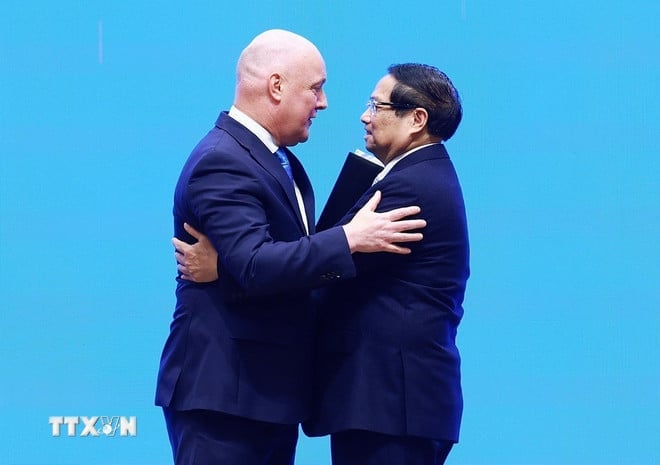
Obviously, the two countries have great potential in trade and education cooperation, tourism, agriculture, fruits and traditional products.
New Zealand also has amazing emerging technology and science. We are the fourth country in the world for the number of rocket launches into space, behind only the United States, China and Russia.
You know, we also have an astonishing 88% of the country's energy coming from renewable sources.
Therefore, we have a lot of potential to cooperate and support Vietnam in many areas, especially when you are aiming to achieve high income for your people by 2045.
Vietnam will be an increasingly influential country, a more prosperous country, and much more closely integrated into the global supply chain. And that is why now is a great time to make a breakthrough in the bilateral relationship.
- The Prime Minister mentioned trade cooperation. As we know, the leaders of both sides agreed to increase two-way trade turnover to 3 billion USD by 2026. So with the current potential of Vietnam and New Zealand, is the Prime Minister optimistic that the two sides will soon achieve this goal?
Prime Minister Christopher Luxon: I think the two countries have potential and opportunities for cooperation in many fields.
First of all, education. New Zealand currently has 8 universities, all of which are in the top 2% of the best universities in the world.
There have been a large number of Vietnamese students studying very effectively in New Zealand. We have a high quality education in English, and also a really safe environment.
Not only do we provide learning opportunities for students, we also improve the English skills of lecturers, professors, graduate students and government officials.
Next, I think tourism will also be a good opportunity for cooperation. It is great that Vietjet Air has just announced the first route between Vietnam and New Zealand, connecting Ho Chi Minh City with Auckland - the economic, tourism and cultural center of New Zealand. That means promoting trade, tourism and cultural exchange between the two countries.
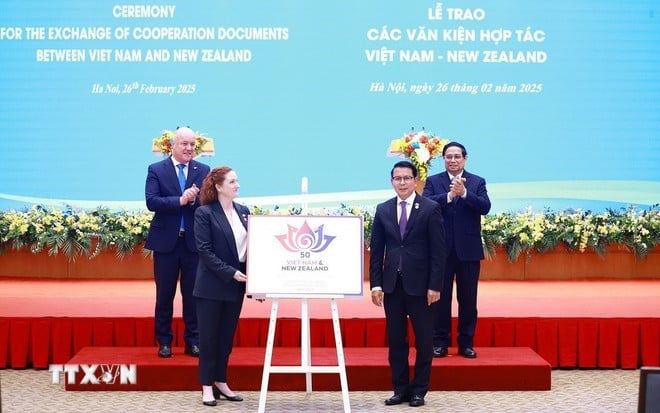
There are many New Zealanders, especially young New Zealanders, who want to visit and travel to Vietnam. This is also an opportunity for Vietnamese tourists to come and experience New Zealand.
In addition, real cooperation opportunities will lie in key sectors such as high-tech agriculture, climate, renewable energy, and aerospace. And the great thing is that Vietnam always has a very good action plan with clear goals. The question is how we need to complement and support each other to be able to take advantage of and promote each country's economy, finding areas with much room to exploit and develop.
Therefore, I think we still have a lot of work to do in the fields of advanced agricultural technology, renewable energy, geothermal energy exploitation..., mainly wind and solar energy.
The two countries have also committed to achieving net zero emissions by 2050, with a focus on the transition to clean energy.
The two countries signed a Memorandum of Understanding on climate to work together in a number of areas of common interest.
The dam safety support projects that New Zealand is implementing with the Vietnamese Government are also important, along with areas of cooperation in science and technology, aiming for greater progress.
- How does the Prime Minister assess Vietnam's economic growth rate as well as Vietnam's role in current regional trade activities?
Prime Minister Christopher Luxon: In my opinion, Vietnam is the fastest growing and strongest economy in Southeast Asia over the past 25 years.
We have noted that Vietnam has achieved an average growth rate of 5-6% per year. This is double, even triple what developed countries are experiencing. The fact that you have maintained this rate for many years is impressive.
That is why, without a doubt, Vietnam is a rising star in the region. Importantly, looking to the future, Vietnam's leaders even expect to exceed their growth targets.
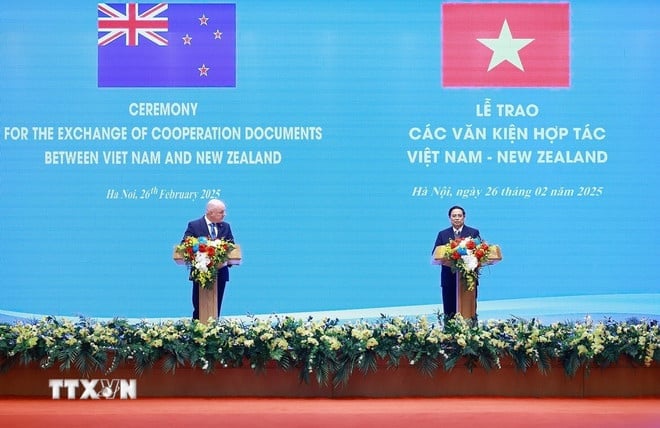
Forecasts also show that your economy will continue to grow at around 7% in the next few years. This is well-founded as Vietnam has done a great job of creating a growing economy, helping millions of people escape poverty, and people's living standards are increasingly improving.
- Education is a leading bridge to connect people with people. Can the Prime Minister share more about this?
Prime Minister Christopher Luxon: Yes, this is one of the things I really admire about Vietnam. Through my recent visit to the Temple of Literature, I saw the tradition of learning that stretches from the past to the present, creating the core values of Vietnam.
Currently, your education system has impressed with many advances such as the PISA International Student Assessment Index surveyed by the Organization for Economic Cooperation and Development (OECD), which is increasingly high. And New Zealand will be a very good educational partner to accompany Vietnam.
We have excellent universities; we have great research, development and science programs focusing on STEM subjects, economics, infrastructure and many other issues. And during this visit, we increased scholarships for Vietnamese students by 56%.
As I said, there are already a large number of Vietnamese students studying in New Zealand, but we want to see more, because this is a great, high-quality environment for students. They will also bring a lot of valuable experience to the New Zealand education system.
- As one of the leaders participating in the ASEAN Future Forum (AFF) recently held in Hanoi, initiated and organized by Vietnam, how does the Prime Minister assess the role of Vietnam as well as ASEAN?
Prime Minister Christopher Luxon: I think Vietnam plays a very important role in ASEAN. Let’s fast forward to 10 years from now, Vietnam will be a much richer, more prosperous country, much more influential and also more strongly involved in regional and global supply chains. But don’t wait until then, right now, Vietnam has a very important role in the region.
The great thing is that ASEAN leaders really understand the spirit of ASEAN and the people in the region are all working very hard to ensure peace, security and prosperity.
Although not a full member, New Zealand is ASEAN's second oldest Dialogue Partner. We value ASEAN's centrality and that ASEAN countries are well placed to make decisions about the opportunities and challenges facing the region.
And so, I appreciate the region's development prospects, and believe that, as an economy, ASEAN will soon become the fourth largest economy in the world in a short period of time.
As ASEAN grows in stature, Vietnam will also play an increasingly important role.
- Thank you very much, Prime Minister./.
Source


![[Photo] Prime Minister Pham Minh Chinh receives Swedish Minister of International Development Cooperation and Foreign Trade](https://vphoto.vietnam.vn/thumb/1200x675/vietnam/resource/IMAGE/2025/5/12/ae50d0bb57584fd1bbe1cd77d9ad6d97)

![[Photo] Prime Minister Pham Minh Chinh starts construction of vital highway through Thai Binh and Nam Dinh](https://vphoto.vietnam.vn/thumb/1200x675/vietnam/resource/IMAGE/2025/5/12/52d98584ccea4c8dbf7c7f7484433af5)


![[Photo] Prime Minister Pham Minh Chinh works with the Standing Committee of Thai Binh Provincial Party Committee](https://vphoto.vietnam.vn/thumb/1200x675/vietnam/resource/IMAGE/2025/5/12/f514ab990c544e05a446f77bba59c7d1)
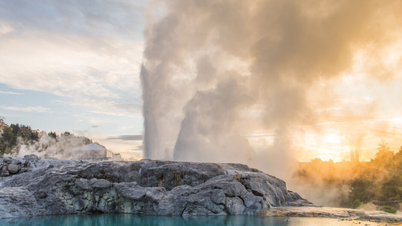
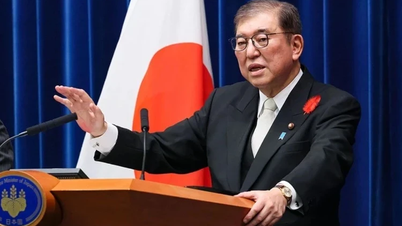
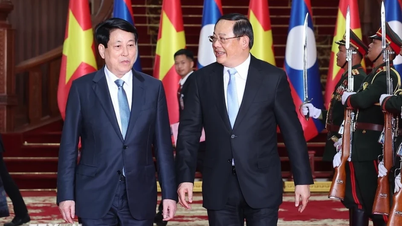

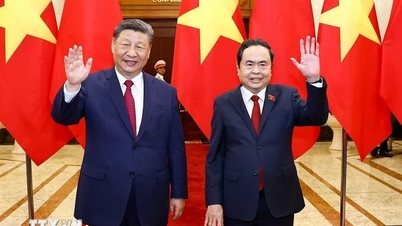


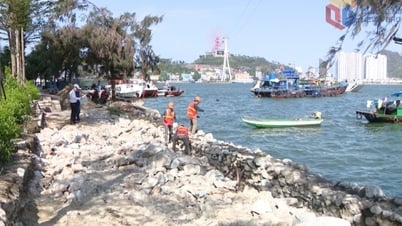
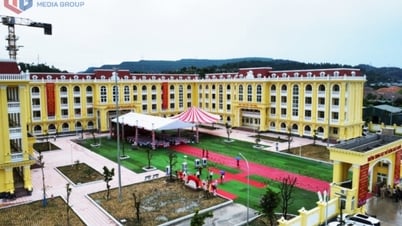


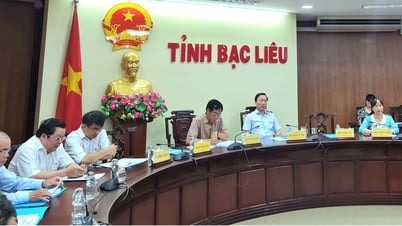




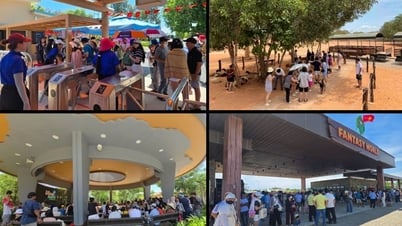


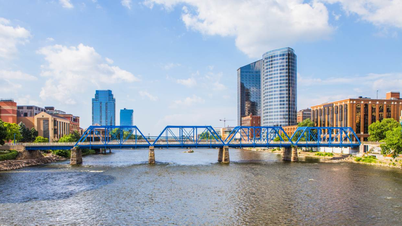


















































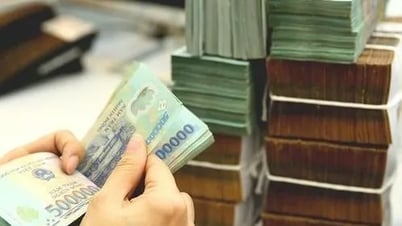



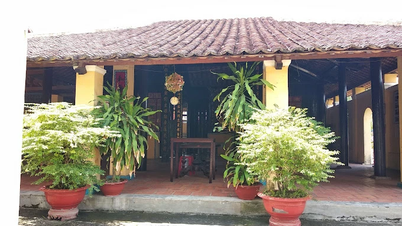


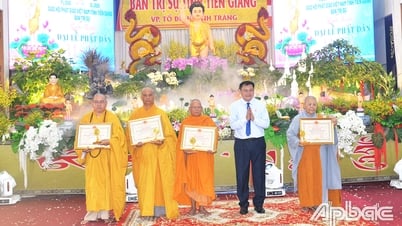











Comment (0)